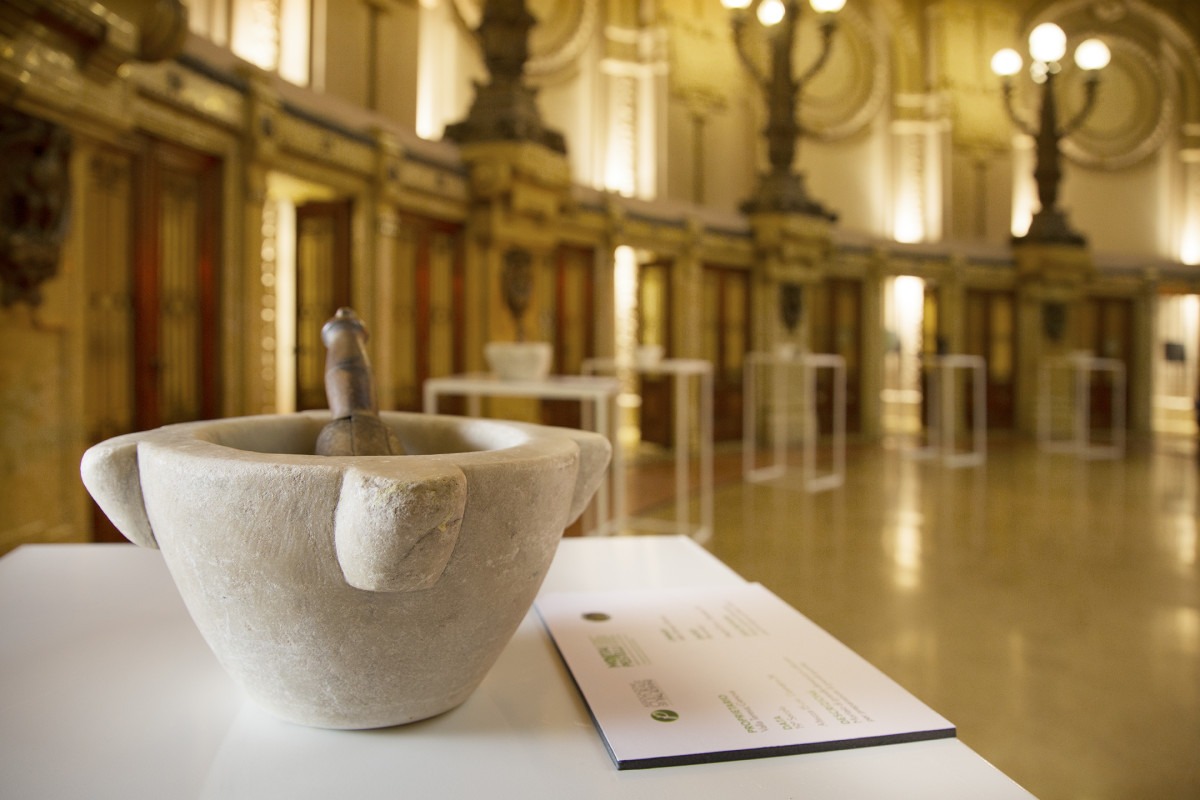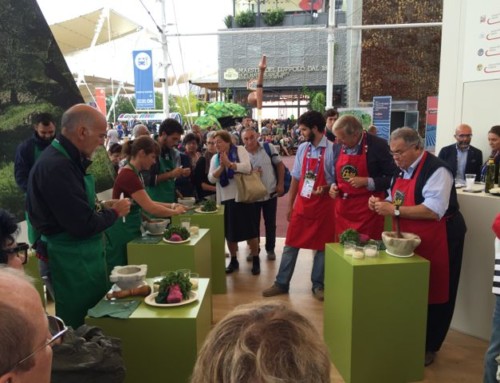Monday, March 14th was held at Palazzo della Borsa, the First Genoa International Experential Meeting dedicated to the use of mortars and pestles in Food Cultures.
An event awaited by many who saw the participation of experts and academics from different European countries and the Middle East. The use of mortars and pestles, considered by many scholars the first food processing tools, is the signal of the advent of civilization and symbol of brotherhood between different people.
The day has been opened by the representatives of the institutions, moderated by Sergio Di Paolo vice president of Palatifini. Paolo Odone, president of the Chamber of Commerce of Genoa and Unioncamere Liguria, does the honors reiterating the importance of the preservation of these ancient instruments also in the Ligurian culinary tradition, and importance of agricultural food production in the economy of our region. Dr. Enrico Arcuri, director of the Ministry of Agriculture, points out how “to make pesto is a symbol of a community identity, a sign of welcome and togetherness capacity”. Carla Sibilla, Genoa Councillor for Tourism and Culture, takes stock of the tourism in our city by providing the positive data on turnout of visitors, increasing trend in recent years.
Roberta Pinotti, the Italian Defence Minister, sends a message of support for the initiative by declaring that “to Genoese people offer a plate of pasta or minestrone with pesto is always a gesture of brotherhood and peace that welcomed sailors from around the world after weeks of hard sailing.”.
Roberto Panizza, President of Palatifini concludes the first session of interventions, talking about the 12-year history of the Pesto World Championship.
The working day has alternated scientific work and study with moments of live cooking to learn how mortars and pestles are used in traditional preparations of the countries of the guests.
Samira Zgheib and Carmel Mhanna from Lebanese American University of Beirut showed how to prepare kibbeh, traditional Lebanese meatballs, Gunnar Nagell-Dhall, Norwegian historian and foo attachè has prepared a cod pie. Rafael Molina Gimena and Joan Antonio Rubies Perez catalan food experts and Alberto Lopez de Ipiña Samaniego and Aitor Basterra from Slow Food Spain from the Basque Region, have prepared some of the most popular sauces made by mortar.
To live cooking has been alternated interventions by experts and academics of international repute. From the University of Genoa prof. Antonio Guerci, anthropologist, who focused on how nutrition represents both a biological and cultural needs, and Antida Gazzola, sociologist, who analyzed the role of food in socialization. From Belgium Michael Singleton, Emeritus anthropologist at the University of Louvain has raised the issue of the “price” of the food and its preparation in certain social contexts; From France Marcel Devaux, territorial marketing expert pointed out how our pesto represents a unique opportunity to promote our territory. Dr. Federica Pascali, nutritionist, explained how the Mediterranean Diet represents a complete and healthy nutrition pattern while Sergio Rossi, historian of Ligurian gastronomic traditions, has traced the path of the history of Pesto.
In occasion of the Light Lunch – coordinated by chef Matteo Losio – it was possible to taste a selection of Ligurian cuisine and traditional products and dishes of the countries of origin of the guests of the meeting.
During the whole day, it was possible to see the exhibition of the mortars of the ancient Ligurian families that will be repeated on April 16th in the occasion of the Sixth Pesto World Championship Palazzo Ducale.
In collaboration with: Camera di Commercio di Genova, Comune di Genova and Regione Liguria.
To see photos of the event, visit the gallery .
Soon, will be available the conference proceedings.


